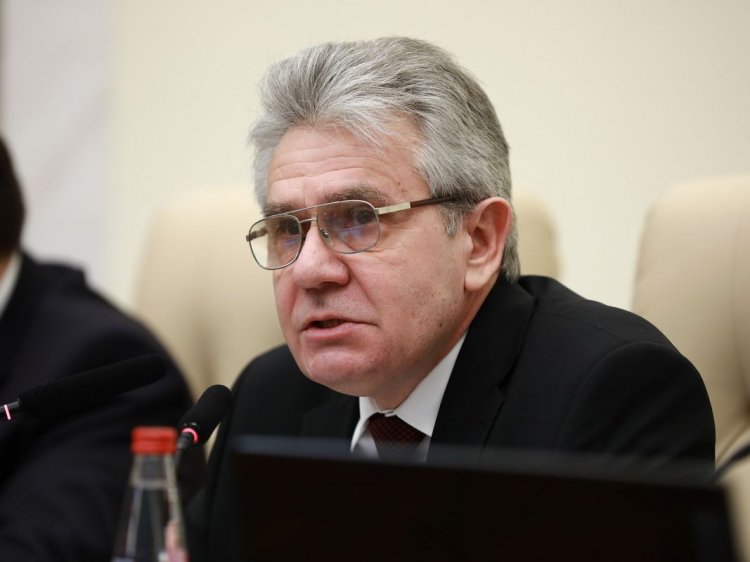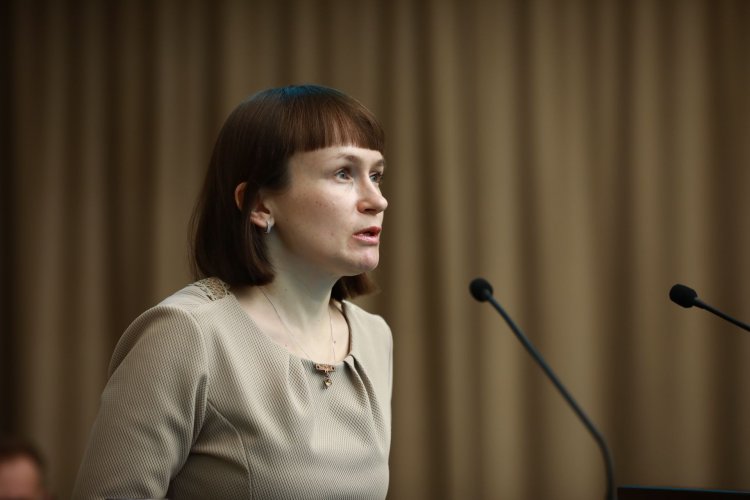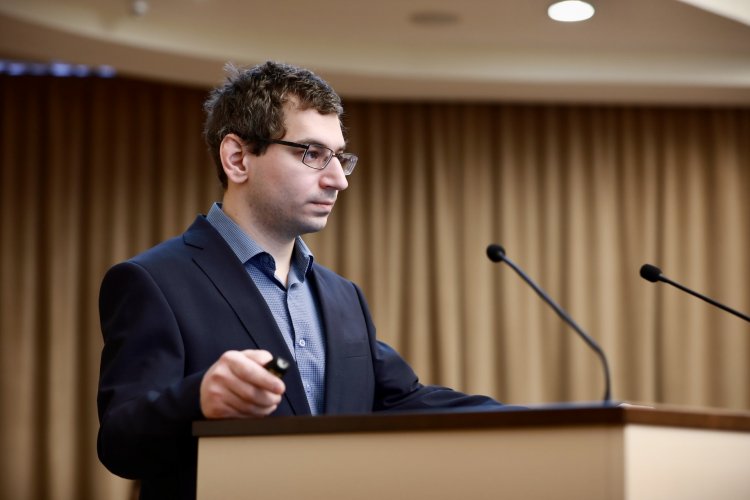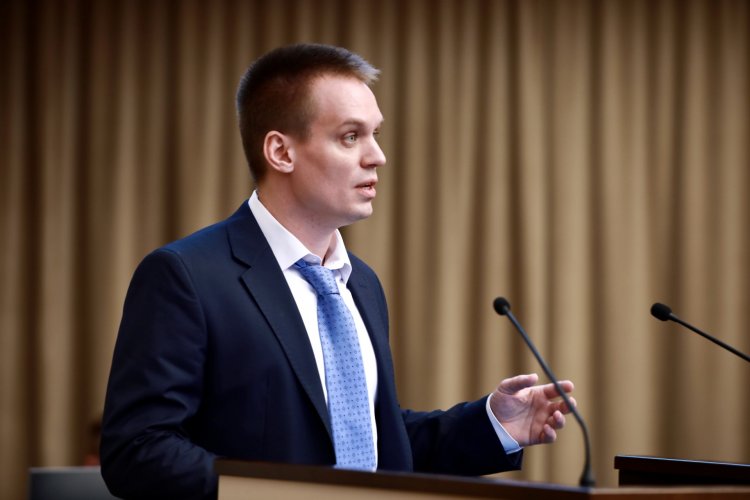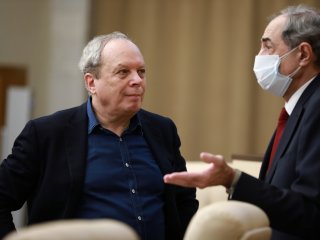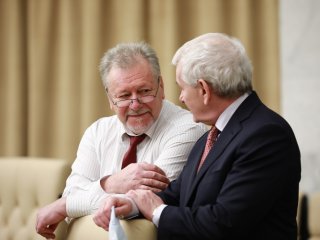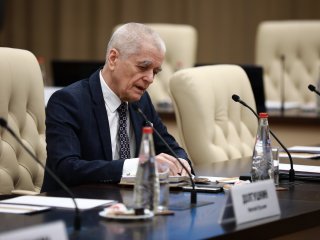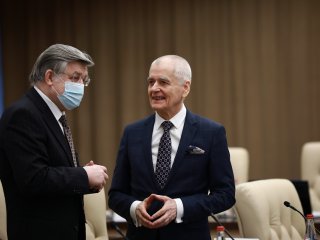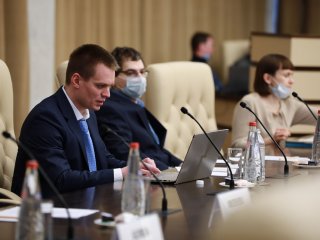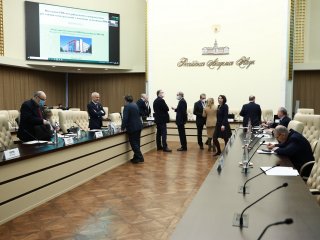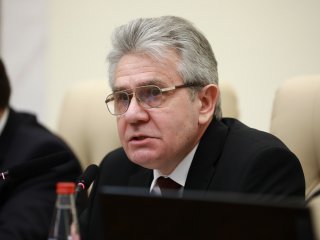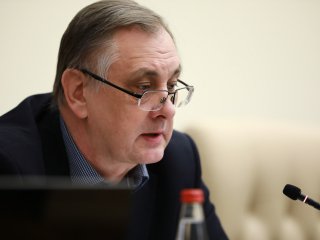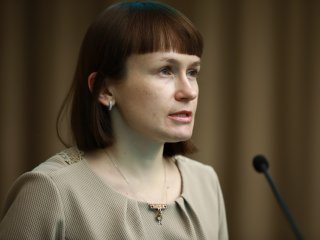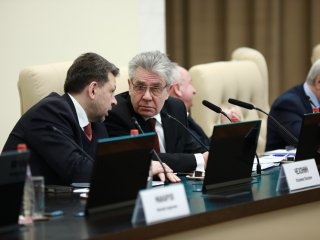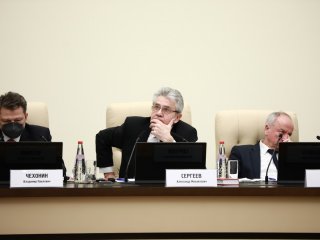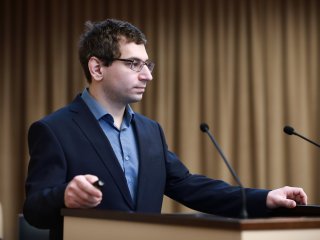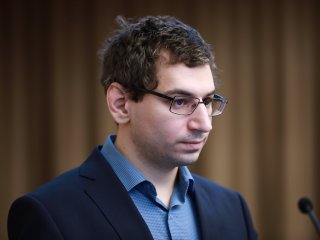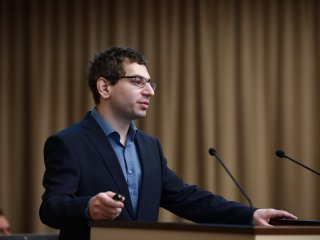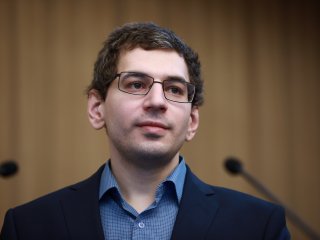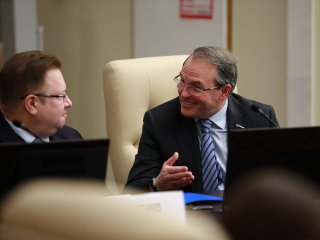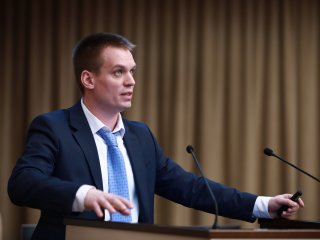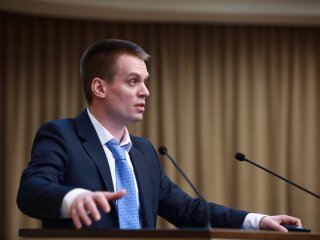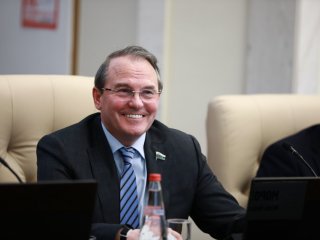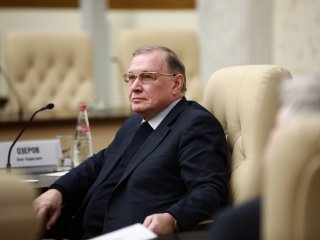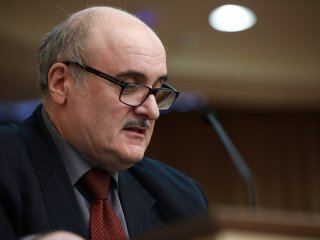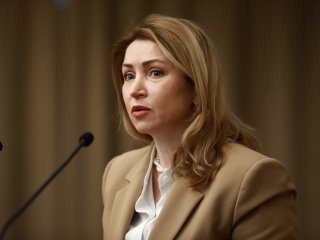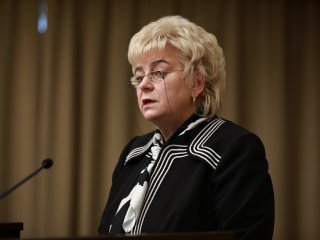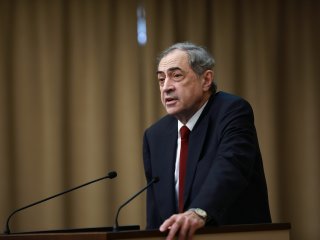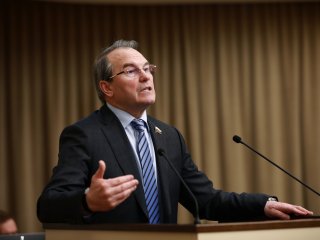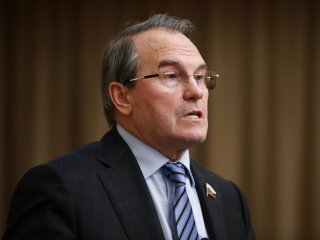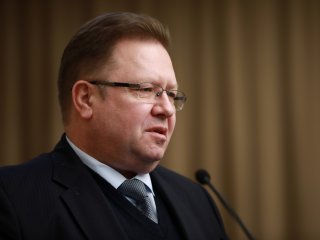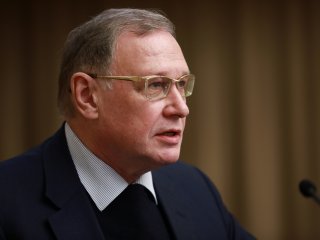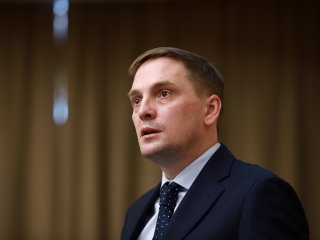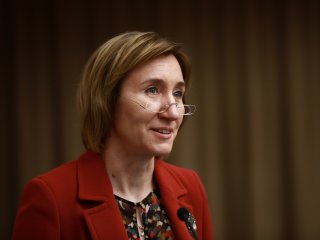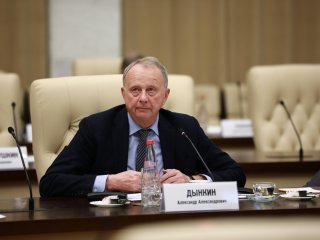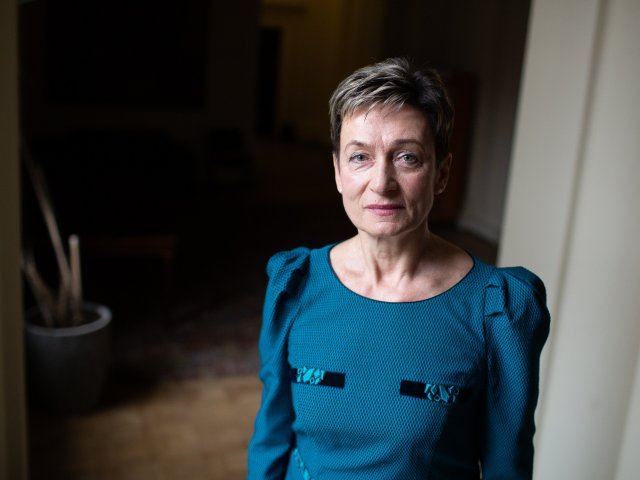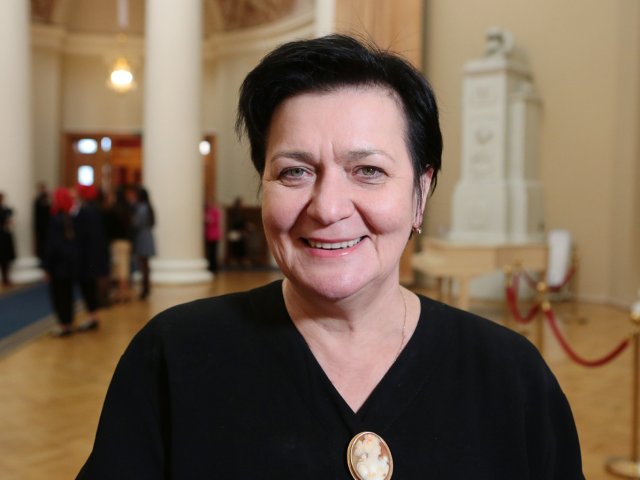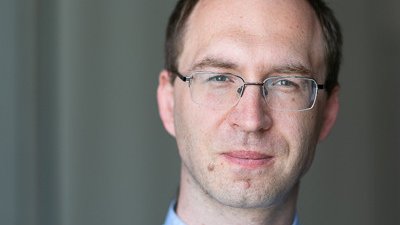On February 9, 2022, an online meeting of the RAS Presidium was held.
Reports of young scientists – laureates of the Presidential Prize in Science and Innovation were presented at the meeting and issues of cooperation with African countries were discussed.
Reports:
- Induction of RNA interference and directed regulation of plant genes using exogenous RNAs. Candidate of Biological Sciences Alexandra Dubrovina. Federal Scientific Center of the East Asia Terrestrial Biodiversity FEB RAS.
- Development of the theory of the electronic structure of compounds of heavy elements for the search for new physics and the study of the structure of the nucleus. Candidate of Physical and Mathematical Sciences Leonid Skripnikov. Petersburg Nuclear Physics Institute named by B. P. Konstantinov, NRC “Kurchatov Institute”.
- The influence of physical factors on the biological characteristics of marine ecosystems. Candidate of Physical and Mathematical Sciences Arseny Kubryakov. Marine Hydrophysical Institute of RAS.
Further:
The geostrategic struggle for Africa and Russia’s interests on the eve of the Second Russia-Africa Summit. Report by Irina Olegovna Abramova, Director of the Institute for African Studies RAS, RAS Corresponding Member.
RAS President Alexander Mikhaylovich Sergeev will talk about the creation of the RAS Council for Regional Policy.
Live broadcast from Scientific Russia Portal!
10.00 Broadcast begins
10.02 RAS President Alexander Sergeev talks about the agenda of the meeting
10.02 RAS President Alexander Sergeev: Yesterday the whole country celebrated the Day of Russian Science
10.03 RAS President talks about the history of the Day of Russian Science
10.04 RAS President Alexander Sergeev talks about the meeting of the Presidential Council for Science and Education, which took place on February 8
10.05 RAS President Alexander Sergeev introduces the laureates of the Presidential Prize in Science
10.06 RAS Vice President Andrey Andrianov talks about the work of the Presidential Prize winner Alexandra Dubrovina
10.07 Alexandra Dubrovina, the laureate of the Presidential Prize in Science, delivers her report Induction of RNA interference and directed regulation of plant genes using exogenous RNAs.
Laureate of the Prize of the President of the Russian Federation Alexandra Dubrovina
10.10 Alexandra Dubrovina: Currently, the development of new environmentally friendly approaches to changing various characteristics of plants without modifying their genome is an extremely urgent scientific task
10.12 Alexandra Dubrovina: The overall goal of our work is the induction of RNA interference and silencing of plant genes by treating the plant surface with aqueous solutions of dsRNA and siRNA
10.14 Alexandra Dubrovina talks about the suppression of EGFP fluorescence and EGFP protein accumulation by direct treatment of plants with synthetic dsRNAs
10.17 Alexandra Dubrovina talks about the stages of her scientific work
10.19 Alexandra Dubrovina: For practical results, it is more valuable to increase the content of interesting substances in the plant. Therefore, we switched to the regulation of transcription blockers MybL2 and ANAC032, which block the synthesis of anthocyanins
Conclusions:
- An original technique of external treatment of plants with solutions of dsRNA and siRNA has been developed and the most optimal conditions for specific suppression of the activity of transgenes in the plant genome have been determined.
-Treatment of the leaf surface of A. thaliana with aqueous solutions of synthetic dsRNA encoding the gene of chalcone synthase (CHS, a key enzyme in the biosynthesis of anthocyanins) led to a significant drop in the level of mRNA of the AtCHS gene and a decrease in the content of anthocyanins in treated plants.
-Treatment of the leaf surface of A. thaliana with dsRNA solutions encoding transcriptional repressors of anthocyanin synthesis (AtMybL2- and AtANAC032) inhibited the expression of these genes, while the content of anthocyanins and the expression of AtCHS in A. thaliana plants increased.
It has been established that exogenous dsRNA penetrates the vascular system and individual plant cells, presumably through the stomata, and spreads through the vascular system and in groups of parenchymal cells.
10.22 Alexandra Dubrovina: An original technique of external treatment of plants with solutions of dsRNA and siRNA has been developed and the most optimal conditions for specific suppression of the activity of transgenes in the plant genome have been determined
10.23 Alexandra Dubrovina completes her report
10.24 The participants of the Presidium ask questions to the speaker
10.27 RAS President A. Sergeev gives floor for the next report to the laureate of the Presidential Prize Leonid Skripnikov
10.32 Leonid Skripnikov, the laureate of the Presidential Prize, delivers his report Development of the theory of the electronic structure of compounds of heavy elements for the search for new physics and the study of the structure of the nucleus
10.34 Leonid Skripnikov: We will consider the electric dipole moment of an electron. Let’s imagine an electron – we know that an electron has such a quantum characteristic as spin. At the everyday level, we can say that spin is some intrinsic moment of the electron’s momentum
10.38 Leonid Skripnikov: If we talk about new models of physics, they say that the dipole moment of an electron should be at the level of 10-27 electrons per centimeter
10.39 Leonid Skripnikov talks about the tasks of theoretical research
Leonid Skripnikov
10.43 Leonid Skripnikov talks about the “mystery of the hyperfine structure of Bi”
10.46 Leonid Skripnikov: The theory can offer new promising objects on which it is possible to measure the dipole moment of an electron and other effects of violation of the asymmetry of fundamental interactions
10.47 Leonid Skripnikov finishes his report. Members of the Presidium ask questions
10.52 Leonid Skripnikov answers the questions of the Presidium members
10.54 Members of the Presidium announce the report of the Laureate of the Presidential Prize Arseny Kubryakov
10.55 Arseny Kubryakov delivers his report The influence of physical factors on the biological characteristics of marine ecosystems
10.57 Arseny Kubryakov: The bio-productivity of the ocean affects many processes on our planet, including the carbon cycle. The ocean is a biological pump that, on average, absorbs 50 percent of carbon dioxide and converts it into bottom sediments
10.59 Arseny Kubryakov talks about the universal connection between the deep chlorophyll maximum and illumination
11.03 Arseny Kubryakov talks about changes in the bioproductivity of the seas and their causes
11.05 Arseny Kubryakov: There are also significant effects during the warm period, and we have recently observed absolutely abnormal phenomena in the ecosystem of the Black Sea associated with the storms
Arseny Kubryakov
11.06 Arseniy Kubryakov: What is the reason for these changes in vortex dynamics from year to year? This question has been troubling oceanologists for a long time, but there is little information about the causes of variability. Methods of automatic identification of vortices came to the rescue
11.10 Arseny Kubryakov finishes his report
11.11 The Presidium asks questions to the speaker
11.14 Academician of the Russian Academy of Sciences Gennady Onishchenko
11.16 Arseny Kubryakov talks about satellite monitoring of pollution of the seas and oceans
11.19 Arseny Kubryakov continues to answer the questions of the Presidium members
11.25 The laureates of the Presidential Prize have completed their reports. The Presidium proceeds to discuss other issues
11.29 RAS Corresponding Member, Director of the Institute for African Studies RAS Irina Abramova delivers her report Geostrategic struggle for Africa and Russia’s interests on the eve of the Second Russia-Africa Summit
11.30 Irina Abramova talks about social stereotypes regarding Africa
11.34 Irina Abramova: When someone mentions Africa, we imagine first of all backwardness, poverty, conflicts, wars, illiteracy, corruption, piracy, drug trafficking, illegal migration, and refugees, as well as old leaders who have been in power in African countries for many years. Nevertheless, such an idea of Africa is somewhat outdated, to put it mildly. Most international experts and scientific centers call Africa the “continent of the 21st century”
11.37 Irina Abramova talks about Africa in the Russian information field
11.38 Irina Abramova: We have, in fact, common goals and objectives
11.40 Irina Abramova: Africa’s share in world foreign trade and investment inflows is still growing, but it remains quite low
11.41 Irina Abramova talks about the economic potential of Africa and the dependence of the US, EU, China, and Russia on the supply of raw materials from Africa
11.45 Irina Abramova talks about the strategies of countries with regards to Africa
11.52 Irina Abramova talks about the 2019 Russia-Africa Summit and Economic Forum
11.54 Irina Abramova: In 2013, Africans put forward Agenda 2063, the main task of which is an integrated, prosperous, peaceful Africa, governed by its citizens
11.58 Irina Abramova: Our cooperation should go not only in the technological sphere but also in the scientific sphere since we are the Russian Academy of Sciences and this is very important to us
11.59 Irina Abramova talks about the scientific level of African countries
12.00 Irina Abramova: The most important thing we must do is change our approaches to Africa and change our accents. This is an emphasis on a technological and innovative scheme, the use of a public-private partnership mechanism, the development of a new financial mechanism for interaction
12.02 Irina Abramova finishes the report. The Presidium members ask questions to the speaker
12.03 Irina Abramova talks about priority areas of scientific cooperation with Africa
12.07 Presidium members discuss security issues of cooperation with Africa
12.10 Deputy Director of the Institute for African Studies Leonid Fituni
12.12 Leonid Fituni talks about the stages of transformation of the world order and Africa’s reaction to them
12.15 Leonid Fituni: Now Africa has turned out to be, in fact, the western frontier of the confrontation between China and the Euro-Atlantic community, since, in fact, it divides the area of Europe and the Euro-Atlantic area dominated by the West and rising Asia
12.17 Leonid Fituni talks about the problem of illegal migration
12.18 Deputy Minister of Science and Higher Education Natalia Bocharova
12.21 Natalia Bocharova talks about cooperation with Africa
12.24 Natalia Bocharova: The political and economic situation has developed so that after the active attention paid to Africa in the Soviet period, we began to treat this continent as a grown-up child who was released into independent life and forgot to visit him and ask what was going on and whether he needed any help. We essentially left it without attention and this is our big strategic mistake.
12.26 Natalia Bocharova talks about the possibility of opening branches of Russian universities in Africa
12.28 Natalia Bocharova: We have a Russian-African university. It was established in August 2021, at the start it included 12 universities and one scientific organization – the Institute of Biology of the Southern Seas. Now this organization includes 30 structures, including business structures
12.32 Natalia Bocharova talks about trusting relations between Russia and African countries: “Russia has never been a colonizer for any of the countries of Africa”
12.33 Natalia Bocharova finishes her speech, the Presidium members are asking questions
12.36 RAS Vice President Irina Donnik delivers a report on the prospects of cooperation between Russia and Africa in the agricultural sector
12.38 Irina Donnik: Interest remains in such areas as agricultural soil science, the introduction of technologies for soil treatment, the creation of new varieties, their improvement, and pest control
12.40 Irina Donnik talks about African students in Russian agricultural universities
12.44 Irina Donnik finishes the report
12.45 Academician Yury Dgebuadze delivers a report on Russian biologists in Africa
12.48 Yury Dgebuadze: In 1987, an agreement was signed on the creation of a joint Soviet-Ethiopian biological expedition, which was to be re-signed every five years. The situation became critical in 2017
12.50 Yury Dgebuadze talks about the results of a biological expedition in Africa
12.54 Yuri Dgebuadze talks about research on historical ecology
12.56 Member of the Federation Council of the Federal Assembly of the Russian Federation Igor Morozov
12.59 Igor Morozov: Today, the regional economy is working for export, regional export support centers have been created. Our entrepreneurs produce a very wide range of high-tech products. They need a market, so access to Africa is an extremely important strategic need for us to strengthen our regions.
13.02 Igor Morozov talks about international competition in Africa
13.04 Igor Morozov talks about the need to support businesses that plan to work in Africa
13.07 Director of the Africa Department of the Ministry of Foreign Affairs Vsevolod Tkachenko
13.09 Vsevolod Tkachenko talks about the mechanisms of interaction of institutions in the field of cooperation with Africa
13.13 Vsevolod Tkachenko: We are planning the second Russia-Africa summit for 2022
13.14 Oleg Ozerov, Head of the Secretariat of the Russia-Africa Partnership Forum
13.17 Oleg Ozerov talks about the concept of developing relations with the African continent, which was adopted last year
13.19 Oleg Ozerov: Long-term entry into African markets is impossible without the creation of investment funds
13.22 Vyacheslav Smolensky, Deputy Head of Rospotrebnadzor
13.24 Vyacheslav Smolensky talks about the epidemiological danger of Africa
13.25 Vyacheslav Smolensky: Over the past years, Rospotrebnadzor has been step by step restoring scientific cooperation with the countries of the continent in the field of prevention and study of infectious diseases
13.28 Vyacheslav Smolensky talks about the scientific cooperation of Rospotrebnadzor with African countries and scientific missions to the continent
13.31 Anna Belyaeva, Executive Director of the Association for Economic Cooperation with African Countries
13.36 Anna Belyaeva talks about the need to coordinate the actions of various structures in the field of cooperation with Africa
13.37 Anna Belyaeva: The scientific community is a driver for the creation of state initiatives
13.39 Academician of the Russian Academy of Sciences Alexander Dynkin
13.41 Alexander Dynkin: Another important aspect: the geostrategic location of Africa. It is surrounded by two oceans and all the leading world powers are looking for opportunities to create their own anchor points for their navies on the coasts.
13.43 Alexander Dynkin finishes his speech
13.44 RAS President Alexander Sergeev talks about the results of the discussion of the African issue
13.46 Members of the Presidium discuss the draft resolution of the meeting
13.51 Members of the Presidium discuss amendments that should be made to the final resolution of the meeting
13.53 RAS President Alexander Sergeev raises the issue of creating the RAS Council for Regional Policy
13.55 Alexander Sergeev: Recently, we have been establishing relations with the regions not only through institutes and universities but also through the regional leadership
13.57 Members of the RAS Presidium discuss the creation of the RAS Regional Policy Council
14.03 The members of the Presidium discuss the composition of the Council and propose candidates
14.08 The members of the Presidium supported the initiative to create the Council for Regional Policy of the Russian Academy of Sciences
14.12 The members of the Presidium turn to the issue of awarding the gold medal named after V. M. Bekhterev in 2022
14.16 The gold medal named after V. M. Bekhterev in 2022 was awarded to Yury Bubeev for a series of works on the psychophysiology of persons of dangerous professions
14.17 The Presidium proceeds to the issue of amendments to the composition of the RAS Council on Innovative Problems of Transport and Logistics
14.20 The Presidium supported the decision to amend the composition of the RAS Council on Innovative Problems of Transport and Logistics
The broadcast is over
Photo: Elena Librik / Scientific Russia
